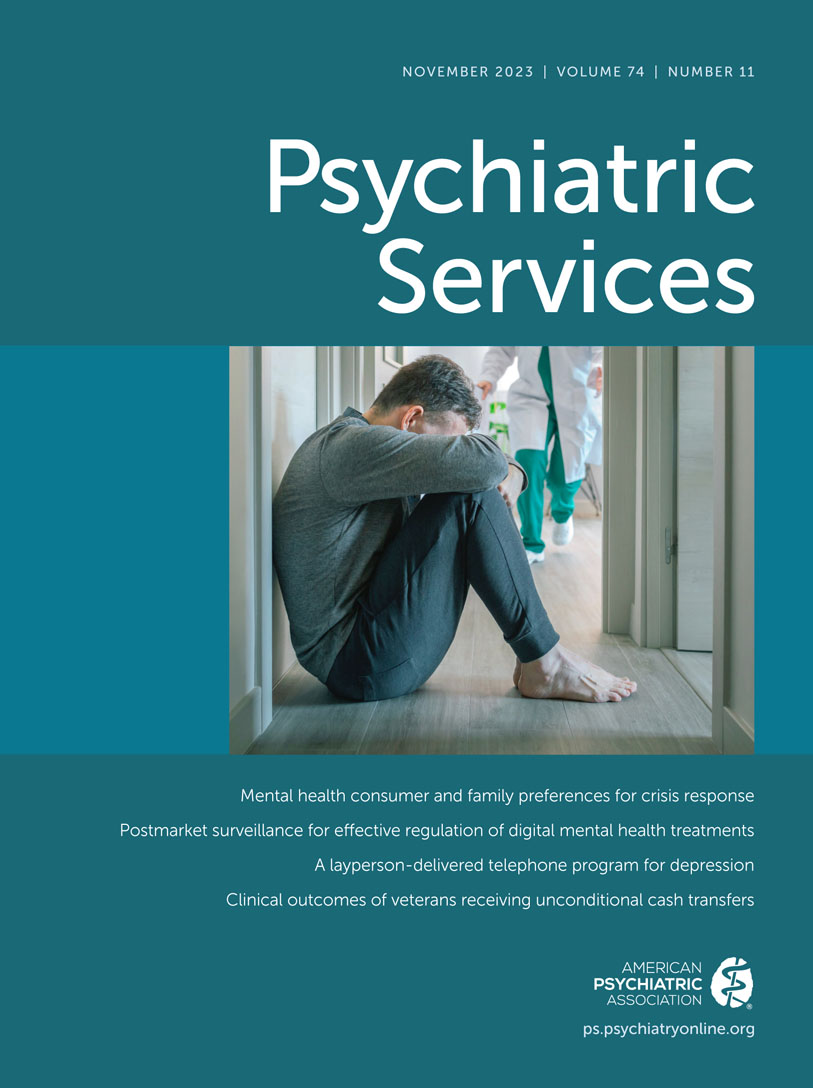Associations Between Medicaid Expansion and Mental Health Among U.S. Racial and Ethnic Groups
Abstract
Objective:
The authors examined associations between Medicaid expansion and self-reported mental health by race-ethnicity, focusing on lagged associations.
Methods:
This retrospective, cross-sectional study used 2011–2019 data from the Behavioral Risk Factor Surveillance System. The sample included low-income, childless adults ages 25–64 years. Difference-in-differences (DID) analysis was used to estimate associations between Medicaid expansion and self-reported mental health. Lagged associations were examined by separating the postexpansion period into proximal (2014–2016) and distal (2017–2019) periods.
Results:
In the overall sample (N=327,248), Medicaid expansion was associated with a reduction in the mean number of self-reported past-month poor mental health days (DID=−0.12, 95% CI=−0.21 to −0.03), after adjustment for covariates. The expansion was associated with significant reductions in past-month poor mental health days for the following groups: non-Hispanic White (DID=−0.18, 95% CI=−0.29 to −0.07), non-Hispanic Asian (DID=−1.15, 95% CI=−1.37 to −0.93), non-Hispanic other (DID=−0.62, 95% CI=−1.03 to −0.21), and Hispanic (DID=−0.48, 95% CI=−0.73 to −0.23). The non-Hispanic Black group had a significant increase in past-month poor mental health days (DID=0.27, 95% CI=0.06 to 0.49), and no significant change was noted for the American Indian or Alaska Native (AIAN) group. Improvements in mental health observed at the beginning of the policy implementation (proximal period) were not sustained over time for some racial-ethnic minority groups.
Conclusions:
Although Medicaid expansion improved mental health for the overall sample, some racial-ethnic disparities were detected. The negative and insignificant associations for the non-Hispanic Black and AIAN groups, respectively, highlight the need to better understand why the Medicaid expansion affected racial-ethnic groups differently.
Access content
To read the fulltext, please use one of the options below to sign in or purchase access.- Personal login
- Institutional Login
- Sign in via OpenAthens
- Register for access
-
Please login/register if you wish to pair your device and check access availability.
Not a subscriber?
PsychiatryOnline subscription options offer access to the DSM-5 library, books, journals, CME, and patient resources. This all-in-one virtual library provides psychiatrists and mental health professionals with key resources for diagnosis, treatment, research, and professional development.
Need more help? PsychiatryOnline Customer Service may be reached by emailing [email protected] or by calling 800-368-5777 (in the U.S.) or 703-907-7322 (outside the U.S.).



